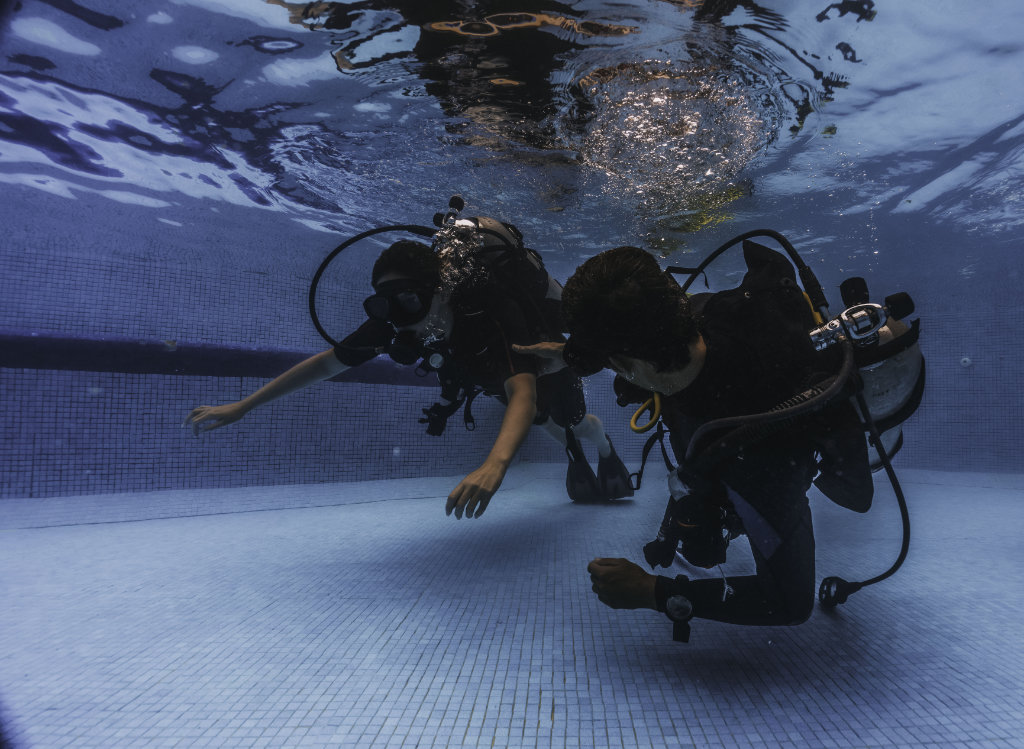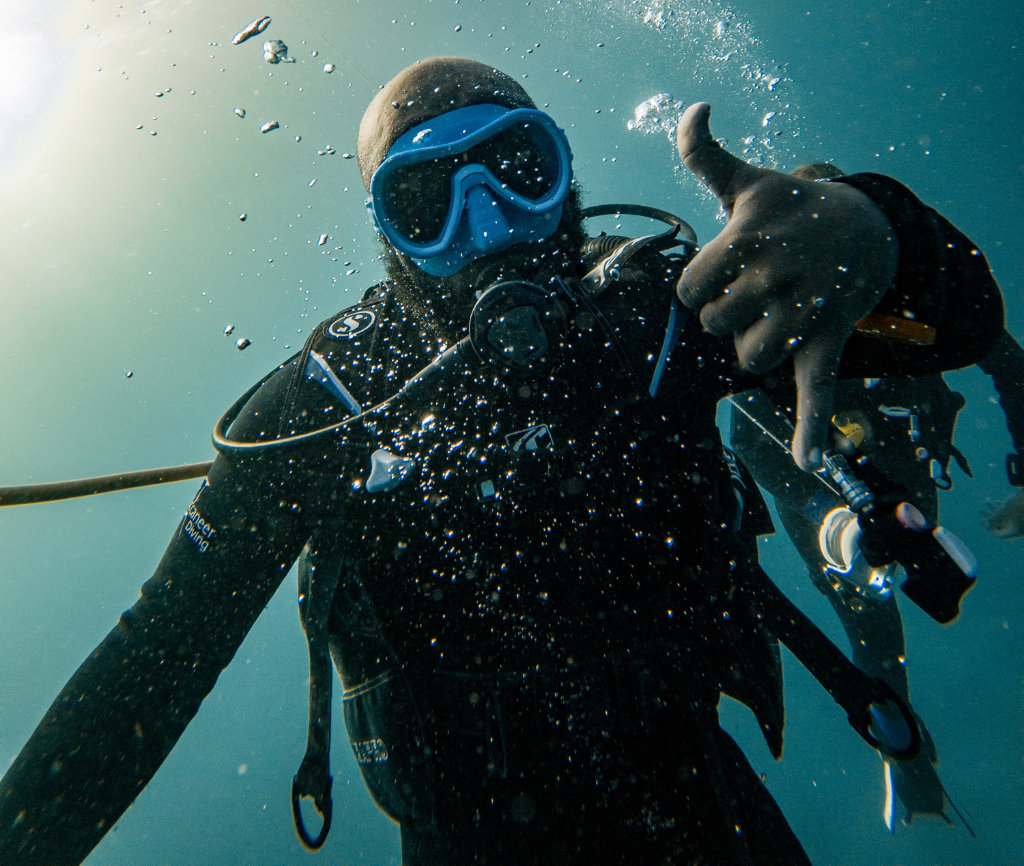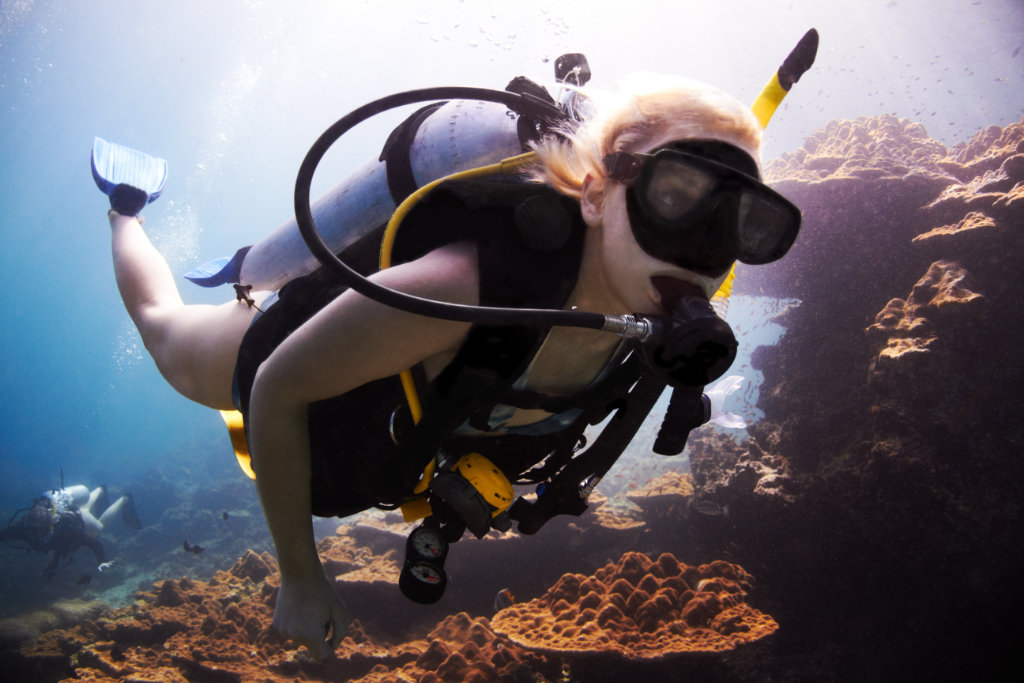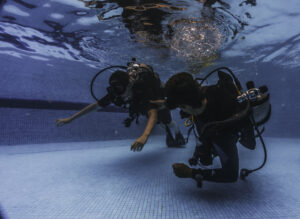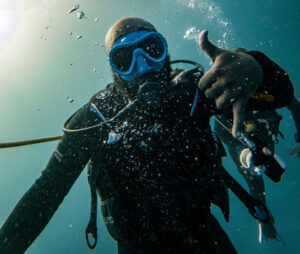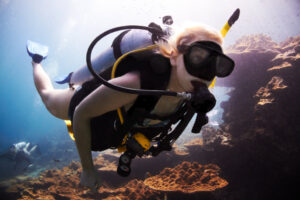Decompression sickness. Scuba diving is an amazing underwater adventure that offers an unparalleled experience for both nature enthusiasts and adventure lovers. By using specialized equipment such as a scuba cylinder, regulator, and buoyancy control device,
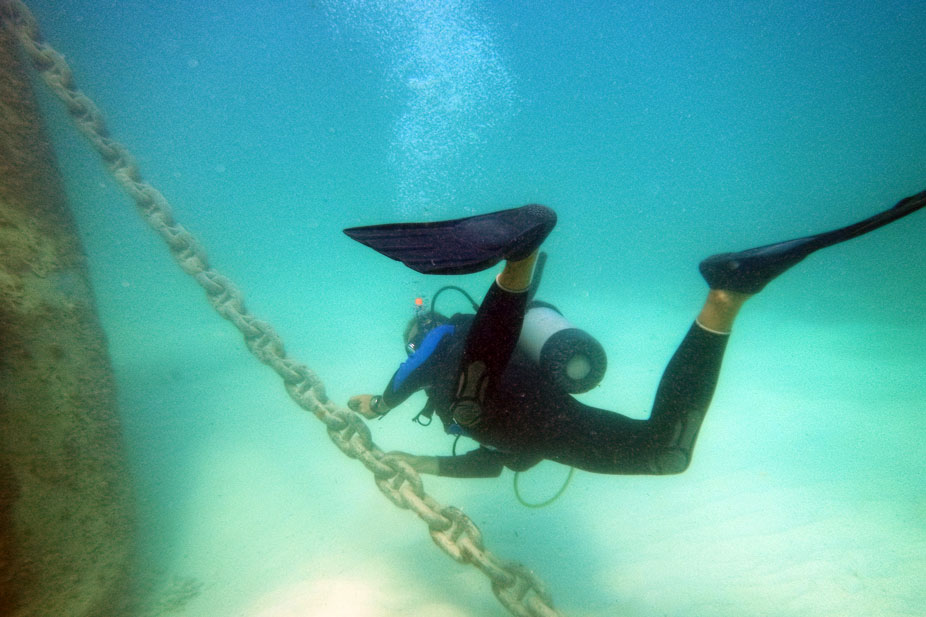
you can explore the depths of the ocean and marvel at the incredible beauty of the underwater world.
However, like any adventurous sport, scuba diving comes with its share of risks. One potential danger that might pose a threat to your scuba diving safety is descending too fast.
In this article, we will outline the potential hazards of descending and ascending too fast, the risk factors for developing ear barotrauma and decompression sickness, as well as the prevention methods that you can employ to safeguard yourself against these dangers.
Get the latest articles in your inbox fresh and ready to read …
Get the Scubly "All Access Pass"
All Access Pass members enjoy unlimited access to entire articles – 100% FREE
By signing up you agree to our Terms of Service and Privacy Policy. You also agree to receive our newsletters (you can easily and quickly opt-out at any time).
You will receive free access to all of our articles while you are a member of the site.
The Potential Hazards Associated with Descending Too Fast During a Dive
Scuba diving might seem like a serene and calm activity, but beneath the surface lies a world full of potential hazards. When scuba diving, it’s crucial to be aware of the potential dangers that could arise from descending too fast.
Two of the most common potential hazards connected to rapid descents in scuba diving are ear barotrauma and decompression sickness.
Ear Barotrauma and Decompression Sickness
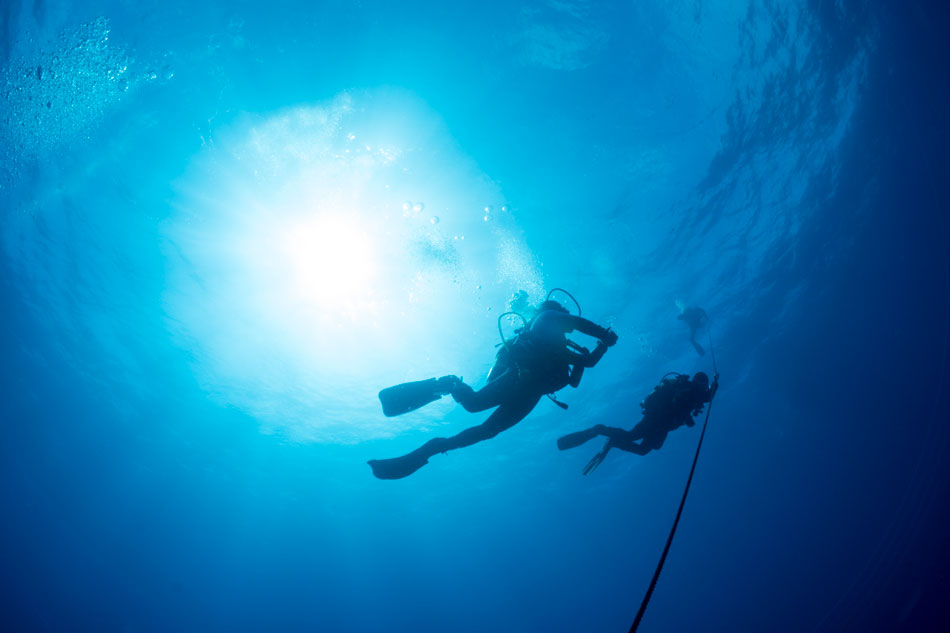
Ear barotrauma is an injury resulting from the rupture or damage of the eardrum or the middle ear due to a rapid change in pressure. This can occur while scuba diving when descending too quickly or without proper equalization techniques.
Because of pressure changes in the middle ear during rapid descent, the eardrum may swell and rupture, leading to severe pain, loss of hearing, or even vertigo.
Decompression sickness, also known as ‘the bends,’ is a condition where nitrogen bubbles form in the bloodstream and body tissues due to rapid changes in pressure. If not handled correctly, decompression sickness can lead to joint pain, muscle pain, dizziness, shortness of breath, or even paralysis and death. It’s essential to understand the signs and symptoms of decompression sickness and how to prevent it while diving.
Risk Factors for Developing Ear Barotrauma and Decompression Sickness
Rapid Descent Rates
One of the primary factors contributing to ear barotrauma and decompression sickness is descending too fast during a dive. A rapid descent does not give your body enough time to equalize the pressure, which can result in injuries or serious complications. When you descend rapidly, the pressure increases quickly, making it difficult for the air in your ears, sinuses, and lungs to equalize. This can lead to injuries and complications such as barotrauma and decompression sickness.
Equalizing Techniques Used When Descending
Inadequate or improper equalization maneuvers might not facilitate the pressure equalization in your ears and can cause barotrauma. Awareness of correct techniques and practice is essential for your diving safety. It’s important to learn different equalization methods, such as Valsalva, Frenzel, or swallowing, to find the one that works best for you. Regular practice of these techniques not only helps in preventing barotrauma but also makes your dives more comfortable and enjoyable.
Inadequate Training or Experience Level of the Diver
Scuba divers with poor training or lack of experience are at a higher risk of descending too fast. Proper training and adherence to scuba diving guidelines are essential in avoiding the hazards of rapid descent. Beginners should always start their diving journey with a certified and experienced instructor to gain necessary skills and competency for safe diving.
Prevention Methods to Avoid Risks While Descending Too Fast
1) Properly Equilibrating Your Ears Before Descent
Prior to descending, ensure you have adequately equalized your ears, which helps minimize the risk of barotrauma. Be aware of appropriate equalization techniques and practice them while diving for a safer experience. Equalizing early and often during your descent will help avoid any pressure build-up in your ears.
2) Slowing Down Your Rate of Descent
To protect yourself from the dangers that may arise from descending too fast, ensure you descend slowly and steadily. By doing so, your body has enough time to adjust to the pressure changes, reducing the risk of injuries. While there isn’t a fixed rate to descend, a good rule of thumb is to allow at least 30 seconds per every 10 meters of descent. Additionally, maintain communication with your dive buddy during the descent to ensure both divers are comfortable and progressing at a safe pace.
3) Following Guidelines for Maximum Depth and Duration of a Dive
When scuba diving, always adhere to the established guidelines regarding the maximum depth and duration for your specific dive. Exceeding these guidelines can increase your risk of decompression sickness or barotrauma and put your health in jeopardy. Understand your certification level limits and plan your dives accordingly to remain within safe parameters.
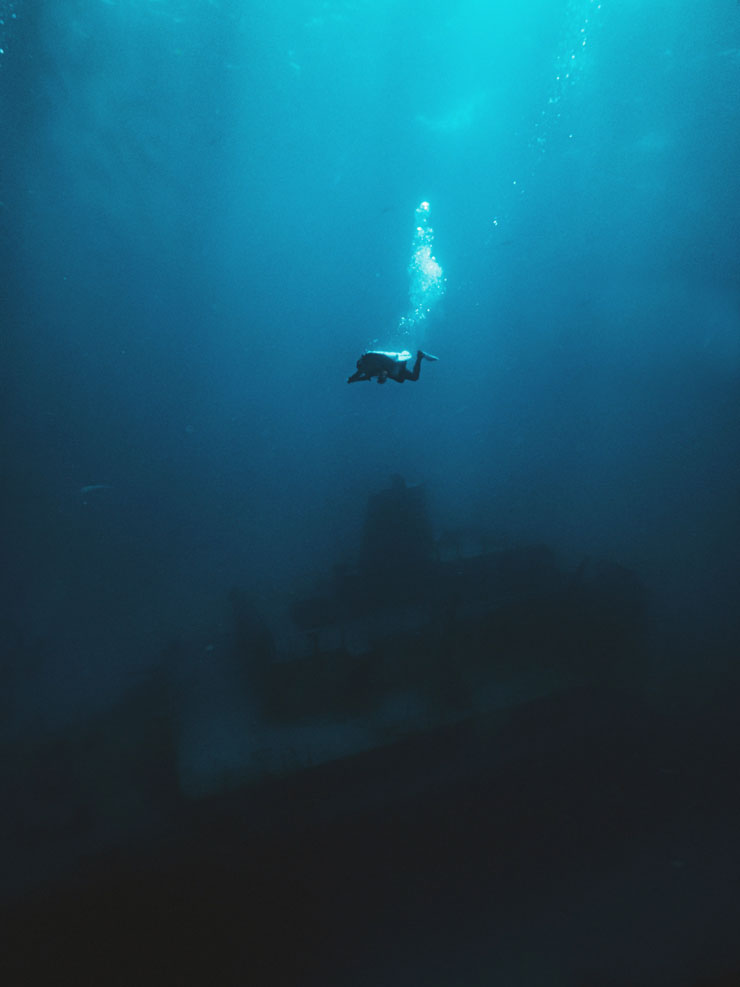
4) Taking Safety Stops During Longer Dives
Safety stops are crucial during longer dives to allow your body to release excess nitrogen accumulated in your bloodstream and tissues. A safety stop is typically conducted at 5 meters for 3 to 5 minutes, but the exact duration may vary depending on your dive profile. By making safety stops, you help prevent the onset of decompression sickness and other potential problems associated with rapid pressure changes.
5) Using an Alternate Air Source (Octopus Regulator)
Having an alternate air source available during a dive is essential in case of unforeseen circumstances where your primary air source malfunctions. This equipment provides additional air in case of emergencies and secures your safety during the descent and ascent.
6) Refreshing Your Skills Through Continuing Education Courses
Continuing education courses are an excellent way to refresh your knowledge and improve your scuba diving skills. Participating in such courses ensures that you remain updated on the latest safety protocols and guidelines to follow during scuba diving, further minimizing the risk of hazards.
The Safety Stop
Descending too fast during scuba diving poses several risks and hazards that have the potential to cause harm or injury. Understanding these dangers and adopting prevention methods is vital for a safe and enjoyable underwater experience.
Take your time during the descent, practice equalization techniques, and adhere to established guidelines to prevent ear barotrauma, decompression sickness, and other complications as you explore the wonders of the ocean.
Dive safe, and remember that proper training, experience, and a responsible attitude are your allies in a scuba diving adventure.
Achieving a balance between adventure and safety is key to enjoying the mesmerizing underwater world that awaits you.

